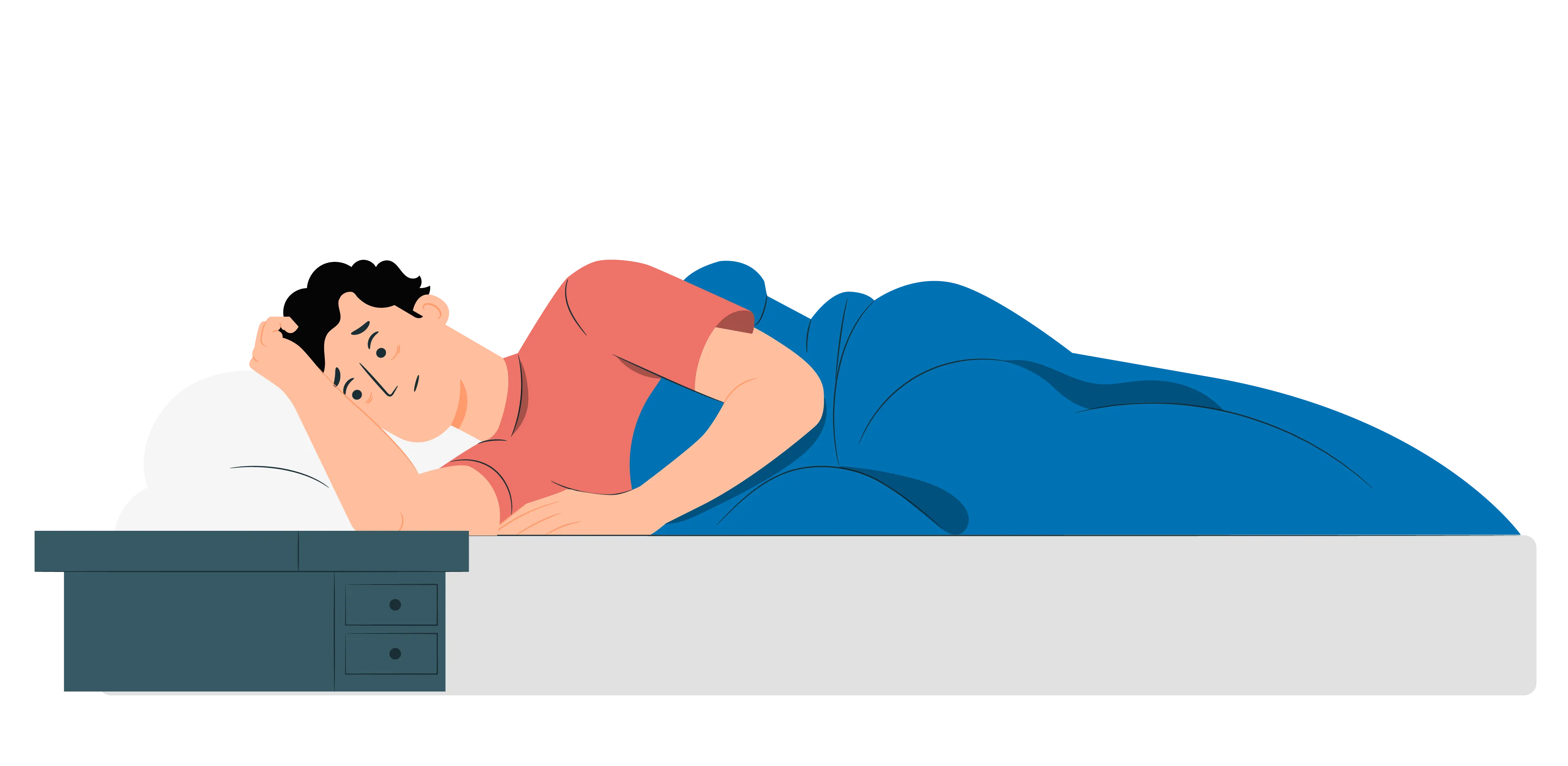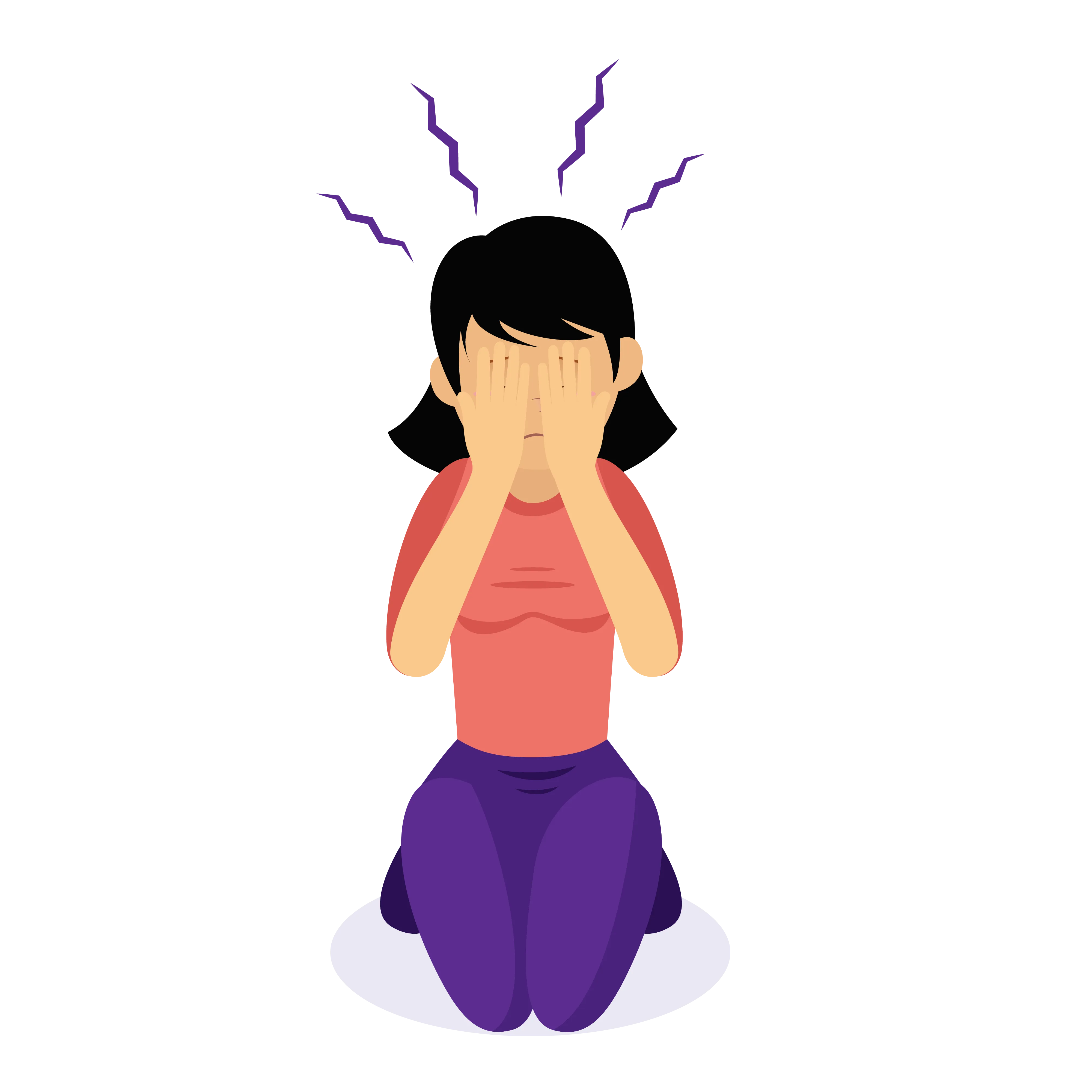Psychiatrist | 4 min read
How are Sleep and Mental Health Connected? Tips to Improve Sleep
Medically reviewed by
Table of Content
Key Takeaways
- Adults should get between 7 to 9 hours of sleep every night
- There is a bidirectional relationship between sleep and mental health
- Insomnia can cause anxiety disorder, depression, and bipolar disorder
Sleep deprivation is a serious health issue of this generation. According to research, about 30% to 40% of older adults suffer from insomnia. [1] Sleep is directly related to your mental and emotional health. Both lack of sleep and oversleeping affects your overall health. Its impact can affect your work and relationships too. So, giving your mind and body the rest they require is important.
According to the National Sleep Foundation, adults should sleep between 7 to 9 hours every night for good health. [2] In fact, sleep and health should go hand-in-hand. Sleep disorders can lead to severe health problems, including anxiety and depression. Lack of quality sleep can also lead to high blood pressure, diabetes, obesity, and heart disease [3]. Read on to know the negative effects of poor sleep on mental health.

The Connection Between Sleep and Mental Health
Traditionally, sleep problems were viewed as a symptom of mental illness. However, it is found that sleep and mental health issues are bidirectional and interrelated. Your psychological state and mental health are affected due to sleep deprivation. On the other hand, those with mental disorders are more likely to suffer from insomnia and other sleep disorders.
Researchers found that brain activity fluctuates during different sleep stages, affecting mental, emotional, and brain health. This is why the inferior quality of sleep can make it difficult for you to focus or react efficiently and inhibit learning.
Additional Read: Easy Home Remedies for InsomniaEffects of Poor Sleep on Mental Health and Physical Well-Being
Tiredness, irritability, and feeling low
Sleeping disorders can make you feel tired and thus behave erratically. You will observe irritability and an unhappy mood when you don’t get enough sleep. You may also feel physical symptoms of anxiety.
Low immunity, high blood pressure, and stress
Lack of sleep can decrease your immunity and further lead to physical problems. Insomnia's effects on health also include high blood pressure and stress.
Heart health problems
Sleep disorders can hurt your cardiovascular health. It can increase the risk of heart attacks and strokes.

Anxiety disorder
Although a sleeping disorder results from anxiety, research indicates that lack of sleep can lead to anxiety in those at a greater risk of it. Chronic insomnia is a risk factor for developing anxiety and depression, as per studies. [44]
Depression
According to a report, around one-third of people suffering from depression show symptoms of insomnia. [5] Also, 40% of young, depressed adults and 10% older people have hypersomnia or excessive daytime sleepiness.
Bipolar disorder
People with bipolar disorder experience changes in their sleep patterns depending on their emotions. Disturbances in sleep are related to inter-episode dysfunction and symptoms that worsen bipolar disorder. Some studies report that manic relapse can also be triggered due to sleep deprivation. [6]
Poor cognitive functioning/ADHD
Your brain works slower if you don’t get enough sleep. You will experience poor cognitive functioning like lower productivity, making mistakes, forgetfulness, or become slower at thinking. Attention-deficit/hyperactivity disorder (ADHD) is a neurological disorder common in children that reduces attention span and increases impulsiveness. A sleeping difficulty associated with ADHD is found in children and adults too. [7]

How to Get Better Sleep for Health Benefits
· Sleep and wake up at a fixed time. Developing this sleep cycle helps you get the number of hours of sleep required for your body in due time.· Sleeping for long during the day will deprive you of required sleep at night. So, control your nap time during the day and limit it to 30 minutes.· Avoid consuming stimulants like caffeine, nicotine, and alcohol, especially before going to bed.· Create the right atmosphere for better sleep. Ensure your bed is comfortable. Turn off lights and ensure there isn’t too much noise that can disturb you. Set the room temperature according to your preferences too.· Working out every day also helps you sleep better at night. Don’t exercise too late in the evening as it may stimulate you, inhibiting sleep.· Be sure to turn off the television, mobile, or any other gadgets. Don’t use electronic devices before going to bed.Additional Read: Learn All about Sleep Disorders and How to Put Them to RestNow that you know the relationship between sleep and mental health have a good night’s sleep. In other words, sleep for health!
If you have difficulty falling asleep, try relaxing techniques. Meditation helps and so do lifestyle changes. You can go to a cognitive-behavioral therapist. If you’re experiencing insomnia or other sleep disorders, consult a medical professional. Book an appointment with a doctor of your choice on Bajaj Finserv Health.
References
- https://www.sleepfoundation.org/how-sleep-works/sleep-facts-statistics
- https://www.sleepfoundation.org/how-sleep-works/how-much-sleep-do-we-really-need
- https://www.ninds.nih.gov/Disorders/Patient-Caregiver-Education/Understanding-Sleep#2
- https://pubmed.ncbi.nlm.nih.gov/17682658/
- https://pubmed.ncbi.nlm.nih.gov/18979946/
- https://pubmed.ncbi.nlm.nih.gov/25750600/
- https://pubmed.ncbi.nlm.nih.gov/28979226/
Disclaimer
Please note that this article is solely meant for informational purposes and Bajaj Finserv Health Limited (“BFHL”) does not shoulder any responsibility of the views/advice/information expressed/given by the writer/reviewer/originator. This article should not be considered as a substitute for any medical advice, diagnosis or treatment. Always consult with your trusted physician/qualified healthcare professional to evaluate your medical condition. The above article has been reviewed by a qualified doctor and BFHL is not responsible for any damages for any information or services provided by any third party.





